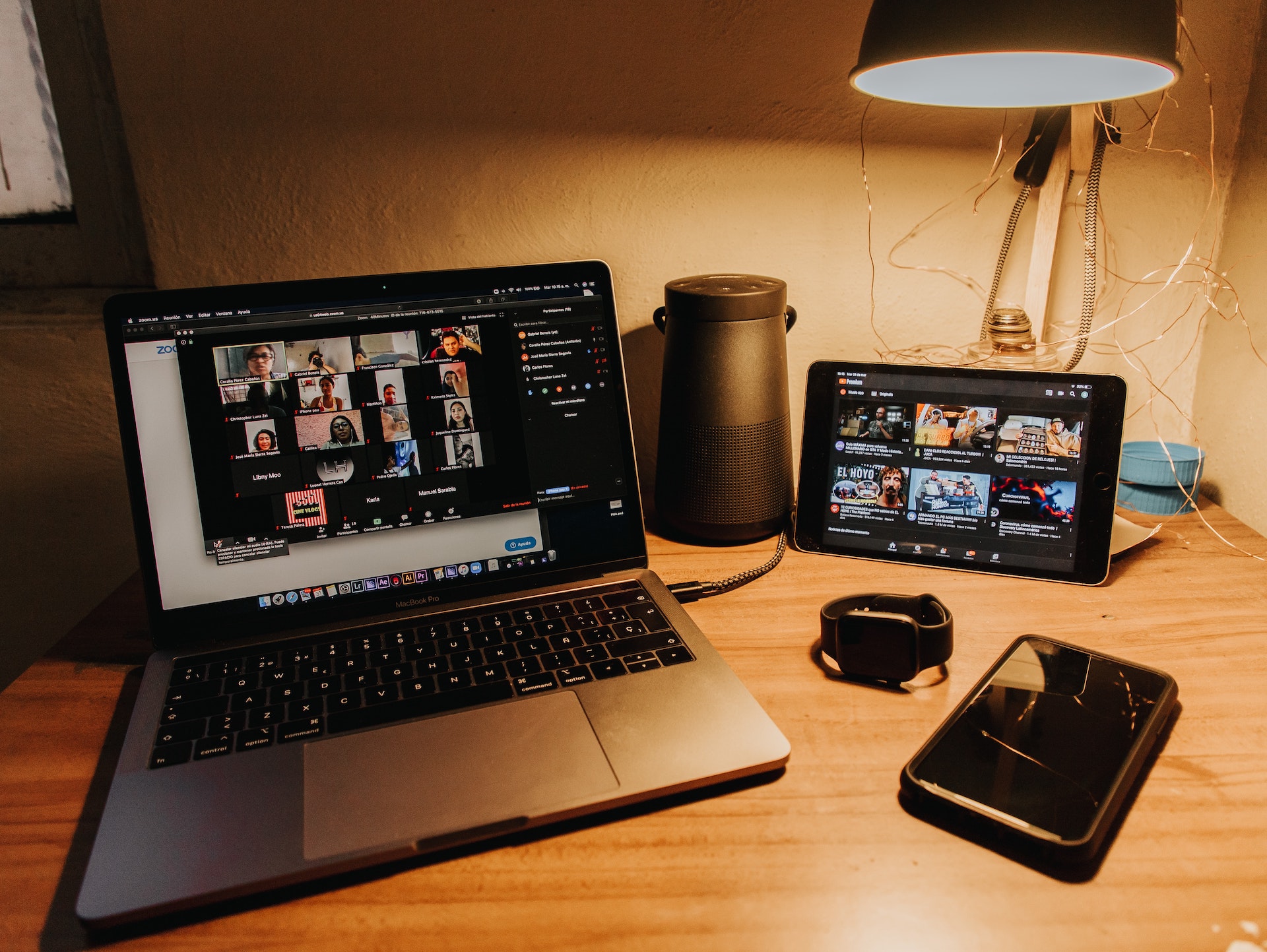As the pandemic seemingly drags on and on with very little hope of immediate evaporation, we are left with questions about the viability of online socialization in the future. It seems to center around the question of whether online interaction, in my case, Zoom, can truly replace face to face experience. Like many of my generation, with one foot in the world before digital technology took over and one foot in this new online-dominated reality, I see both sides.
On the one hand, I feel like being online is really pretty limited at the end of the day. Even the best internet gives out sometimes and the freeze interrupts any truly meaningful connection instantly, reminding you of the distance and the artificiality of the experience. You also only see the person shoulders up for the most part. You miss body language, posture, and a dozen other cues that are part of communication. There’s obviously no touch, hugging, etc, but really you don’t experience the other person’s humanness is what it is: that meat-suit, bodily beautiful decay that we all exist in together. The smells, the sweat of others in their ever-living and dying imperfection. At the end of the day, I know on a gut level that it’s not really real, just dancing, singing images on a screen. Whenever that meeting ends, it always, always comes home to roost, and I feel the real space and silence that was eaten by that trip into virtuality and something….else… aches inside, listening as the sound of distant traffic buffets the glass of my exterior window.
On the other hand, the shift to a life interacting with the outside world all online has had many perks: farewell awful, traffic-ridden commute, farewell never seeing my kids, farewell never seeing my wife, farewell having to leave the house all day and bring the comforts of home on my back, and farewell all the other complications of entering civilization 9-5. In addition to the comforts of home, I have these moments when I’m on Zoom when it feels startlingly real. Like when there’s a pause after I say something, and I suspect that the internet has glitched out and lost the communication, but the silence is really the silence of true communication. The person suddenly feels as if they’re in the room with me, noting my every sound and movement, and I theirs. It’s an eerie matrix-like moment of semi-hallucination, checking myself: is this really online? I feel entirely engaged and entirely lost at the same time. That existential anti-crisis moment when where I tangibly exist suddenly doesn’t much matter, at least in the now.
But while I wrestle with these exigencies, ironically, somewhere I know this will not change. If anything, this paradox will grow with technology, the ever-increasing capability of virtual reality. Most of me is intensely curious to know what will happen when we pass this boundary, when we hop over the fence and leave existential reality behind, just let go. Will we gain infinite power or will we lose ourselves entirely? Or perhaps, more likely, that is the same question.
My answers to these questions are limited, but I know our practicalities must catch up, most notably our educational system. How can we really justify teaching our kids to operate in a system of reality that we know, if we pause for a moment to reflect, won’t exist in 20 years time? Forward thinking education must be forward thinking, must, account for this shift. We must teach our children to operate in a virtual space that is everywhere and nowhere and thrive in that ambiguity. Bringing outdated systems and old ways of thinking to the party simply won’t do justice to the next generation. To them we owe more flexibility in the very imagining of empirical reality.






